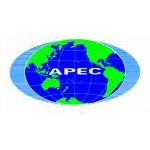APEC leaders do not expect breakthrough in Copenhagen climate talks
 Singapore - Leaders of the 21 Asia-Pacific economies do not expect a breakthrough in climate talks before the Copenhagen meeting in three weeks, a senior US government official said Sunday.
Singapore - Leaders of the 21 Asia-Pacific economies do not expect a breakthrough in climate talks before the Copenhagen meeting in three weeks, a senior US government official said Sunday.
Deputy US National Security Advisor Mike Froman spoke after the leaders of the Asia-Pacific Economic Cooperation (APEC) met with Danish Premier Lars Lokke Rasmussen.
"There was an assessment by the leaders that it was unrealistic to expect a full internationally legally binding agreement to be negotiated between now and when Copenhagen starts in 22 days," he said.
"I don't think the negotiations have proceeded in such a way that any of the leaders thought it was likely that we were going to achieve a final agreement in Copenhagen, and yet thought that it was important that Copenhagen be an important step forward," Froman added.
The leaders felt "it was important and urgent that progress be made and that we use the opportunity of Copenhagen to achieve an agreement with operational impact, not just a political declaration," Froman said.
Rasmussen had flown in overnight for a surprise visit to attend the breakfast meeting organized by Australian Prime Minister Kevin Rudd and Mexican President Felipe Calderon on the sidelines of the Singapore summit.
The Danish premier proposed a strategy called "one agreement, two steps," Froman said, where Copenhagen would be the first step in a process towards an legally binding international climate agreement, with more negotiations to follow.
There had been a "general consensus of support" for Rasmussen's proposal, Froman said, adding that US President Obama backed it.
According to Froman, 19 of the 21 APEC economies attended the meeting, including the US and China, but he was unable to say which leaders missed it.
APEC is home to more than 2.7 billion people and represents about 54 per cent of the global gross domestic product, and 44 per cent of world trade.
The forum includes Australia, Brunei, Canada, Chile, China, Indonesia, Hong Kong, Japan, Malaysia, Mexico, New Zealand, Papua New Guinea, Philippines, Singapore, South Korea, Taiwan, Thailand, Peru, Russia, United States and Vietnam. (dpa)